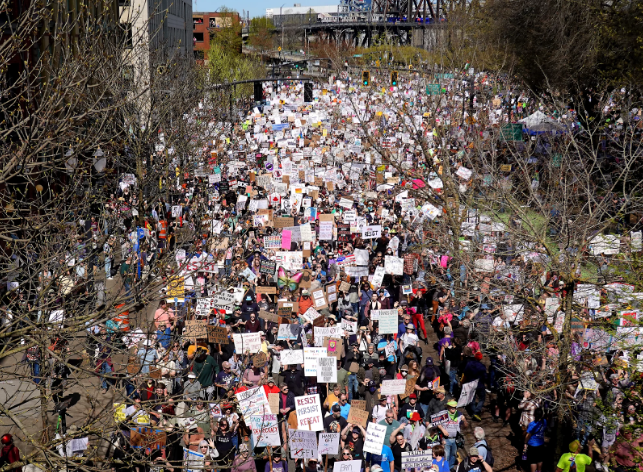Libya is racing against time to bury its dead after catastrophic flooding tore through its northern cities, leaving over 30,000 people displaced.
The Mediterranean cyclone, Storm Daniel, brought record breaking rainfall to Libya, causing two dams to collapse. The subsequent flash floods severely impacted Derna, a port city in eastern Libya. Entire homes and neighborhoods vanished instantly into the ocean along with thousands of residents.
On September 15, reports marked the death toll to be over 10,000 with another 10,000 still missing. Since then, the UN modified the figure to state 4,000 casualties with 9,000 missing. Search and rescue teams frantically search for bodies that may have been buried under rubble in the streets or swept out to sea.
Rescue teams are facing several challenges as they race to find survivors. The debris from the flooding made several regions nearly inaccessible and only two of the seven entry points into Derna are accessible. The teams are moving as quickly as possible in an effort to find survivors, but also to find victims and honor the Islamic belief that the dead should be buried as soon as possible.
Hospital morgues have been filled and bodies are piling up on the streets, leaving many survivors concerned about water contamination and other diseases. Elie Abouaoun, the director for Libya’s international Rescue committee, emphasized that “access to clean water, sanitation, and hygiene facilities will be required to prevent a further crisis within a crisis.”
Countries all over the world are pouring support into Libya. The European Union activated its Civil Protection Mechanism, a system that was established to provide humanitarian aid in the event of a disaster that overwhelmed the affected country’s ability to respond. The United Nations Central Emergency Response Fund also stepped up, donating 10 million dollars to support Libya.
A report by an audit agency in Libya suggests that the dams had not been maintained despite significant funds being allocated to the cause. al-Sediq al-Sour, the general prosecutor for Libya, promised that an investigation was starting stating, “I reassure citizens that whoever made mistakes or negligence, prosecutors will certainly take firm measures, file a criminal case against him and send him to a trial.”
Derna was declared an official disaster zone and Libya faces a long road to recovery with citizens demanding answers and reforms.













